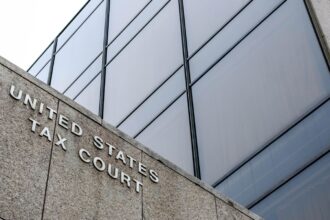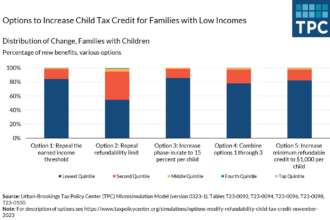Garrett Brodeur, a tax attorney based in Washington, D.C., discusses the recently released proposed regulations for the cryptocurrency industry and their potential effect on digital asset transactions.
This transcript has been edited for length and clarity.
David D. Stewart: Welcome to the podcast. I’m David Stewart, editor in chief of Tax Notes Today International. This week: New industry, new rules.
On August 25, the U.S. Treasury released its much-anticipated proposed regulations for the cryptocurrency industry. However, these regs have raised concerns in the cryptocurrency tax world over their broad scope and potential overreach.
So what’s covered by these regulations? And what comes next?
Here to talk more about this is Tax Notes contributing editor Marie Sapirie. Marie, welcome back to the podcast.
Marie Sapirie: Thank you. It’s good to be back.
David D. Stewart: Now I understand you talked to someone about this. Could you tell us about your guest?
Marie Sapirie: I spoke with Garrett Brodeur, a tax associate in Washington, D.C., who specializes in civil tax controversy. Garrett has been focusing on many of the issues that digital assets present for tax law, and he’s actively involved in the American Bar Association and the New York State Bar Association tax sections. Garrett was trained as a classical musician, and then attended law school at Duke, where he learned to appreciate tax. Garrett has also earned an LLM in tax, and clerked for two years at the U.S. Tax Court. He joined us by phone.
David D. Stewart: Now what sort of issues did you get into?
Marie Sapirie: We discussed many aspects of the newly proposed broker reporting regulations, including the key definitions and what is and is not included in those, as well as the impact of the new rules, and open questions that still remain and that may be answered in either final rules or subsequent guidance. We also discussed the possible changes to digital asset information reporting that are currently percolating in Congress, and how those would affect the proposed rules.
David D. Stewart: All right, let’s go to that interview.
Marie Sapirie: Thank you, Garrett, for joining me today to discuss the recently proposed and long-awaited broker information reporting regulations for digital assets.
Garrett Brodeur: Thanks for having me on the show, Marie.
Marie Sapirie: Before we get into the details of the proposed regulations, would you explain the relevant history of IRS guidance on cryptocurrency prior to the new rules? And how that relates to the proposed reporting rules?
Garrett Brodeur: Yeah, so the genesis of the proposed reporting rules really dates back to 2014 when the IRS issued [Notice] 2014-21. And that notice treats cryptocurrency as property for tax purposes. Meaning that capital gain and loss must be reported by holders of digital assets. And this creates a need for cost basis and holding period tracking, which in turn requires taxpayers to have information on their transactions. So given all of that, there’s a problem, there’s a tax gap. And much of it is believed to be due to unreported digital asset transactions.
In 2018, IRS rolled out the virtual currency compliance campaign, sending letters to crypto taxpayers of speculative noncompliance. And in recent years, data gathered from digital asset exchanges shows a potential 75 percent noncompliance rate among taxpayers with digital asset activities. And the current tax gap is believed to be around $500 billion a year. And that’s for 2014 through 2016, the most recently measured years. And the IRS warned last November that that amount could actually be much greater due to the increased use of cryptocurrencies and offshore tax noncompliance.
So that problem gave rise to the Infrastructure Investment and Jobs Act (IIJA), which enacted the proposed regulations that we’re talking about today. And so the IIJA amended section 6045 of the code to include digital assets among the class of assets that brokers have to report information on when they facilitate transactions. And 6045(a) requires brokers to provide information on customers and gross proceeds. 6045(g) requires additional basis and holding period information for transactions involving covered securities. And the IIJA includes digital assets within the definition of covered securities.
So in sum, the IIJA was really an effort to improve tax compliance by clarifying information reporting requirements for brokers and providing information to customers on their digital asset transactions to remedy the tax gap. And help people voluntarily comply, and report their digital asset transactions. So that’s how we got here today, in a few words.
Marie Sapirie: The proposed broker reporting regulations under section 6045 provide definitions of the key concepts of who is a broker and what is a digital asset. Would you walk us through what is included within those definitions under the proposed rules and what isn’t?
Garrett Brodeur: Yeah, so it’s a huge proposed reg package, 282 pages, 80-something pages in the Federal Register. And the two most critical parts are the definition of broker and the definition of digital asset, like you mentioned.
So “broker” under the proposed regs is defined as any person, U.S. or foreign, that in the ordinary course of a trade or business stands ready to effect sales to be made by others. And that definition includes digital asset exchanges, digital asset payment processors, persons who offer to redeem digital assets that they’ve created or issued, and wallet software providers if the software provides customers access to a digital asset platform. It also includes, most importantly, decentralized exchanges if they’re able to collect information on the ID of their customers and the nature of the customer’s transactions.
And most controversially I think, it includes a new term, “digital asset middlemen,” who provide facilitated services directly or indirectly effectuating digital asset sales, who are in a position to know the ID of [the] party making the sale and the nature of the transaction. So that’s a very difficult standard to analyze. Because as you can imagine, it’s a really fact-intensive analysis, who falls within that definition. And it could scoop up a large part of the industry, and I think that’s what a lot of stakeholders are commenting on right now.
One important note is the definition of broker does not include miners and validators, who are solely engaged in validating transactions. It also doesn’t include hardware or software wallet providers, if the wallet’s sole function is to allow users to control their private key to access digital assets on a blockchain. It doesn’t include merchants who accept digital assets as payment for goods and services. And it doesn’t include a person who simply creates and sells digital assets like NFTs [non-fungible tokens]. So that’s the definition of broker.
Turning to the definition of digital assets, it’s very inclusive. And it’s meant to mimic the breadth of the definition of digital asset from the IIJA. So in simple terms, “digital asset” is defined under the proposed regs as any digital representation of value that is recorded on a cryptographically secured distributed ledger, and that is not cash. So this definition includes NFTs, stablecoins, tokenized assets like real estate, and tokenized commodities. It does not include digital assets that exist in a closed system, like video game tokens, that can be purchased using fiat currency but can only be used in-game. And it also doesn’t include assets used for commercial purposes, like for tracking inventory or processing orders. And it doesn’t include CBDC, central bank digital currencies.
So these two definitions stakeholders are now commenting on. And I feel like every day I read a new article by a group that’s concerned about the way the definitions will impact their activities. Or they’re questioning whether they fall within the definition, or how their circumstances will be analyzed. And these definitions are going to generate a lot of discussion over the next month plus, until the October 30 comment period deadline.
And this is only the tip of the iceberg. The regs are really expansive and they’re meant to be inclusive to capture innovations into the future. And I think that’s probably the most marked characteristic of them.
Marie Sapirie: So having established who has to report and what digital assets are included, would you take us through the information that will be required and when those reports will need to be made?
Garrett Brodeur: Yeah, that’s a great question. And there’s an extended timeline to comply. I think Treasury has recognized the difficulty of complying with these regs, and the structural changes that are required to comply.
So reporting for tax years 2023 and 2024 is optional. For 2026 filings, that’s 2025 tax returns, digital asset brokers have to report information on gross proceeds of their customers. And for 2027 filings for 2026 returns, brokers have to report information on gross proceeds and on cost basis. So there’s a little more information required for 2027 filings.
And it’s not mentioned in the proposed regs, but there may be a Form 1099-DA rolled out at some point to assist with this reporting. And the information that will be required of brokers is going to include things like transaction hash IDs, customer IDs, information on the nature of transactions. So it’s going to be similar to a 1099-B, but potentially different with information about digital asset transactions.
Marie Sapirie: What issues or questions are still open, or in need of clarification, following the release of the proposed regulations?
Garrett Brodeur: So there are many issues, and I feel like, like I said earlier, every day there are new ones being identified. And my comments don’t necessarily represent my views on the regulations or the guidance. These are just intended to summarize the proposed regs and highlight some of the issues, some of the most prominent ones.
I think the main issue right now is that the murky standard for DeFi [decentralized finance] protocols, whether they qualify as brokers under the “digital asset middlemen” term. And it’s difficult because they have to look at the “position to know” requirement. Recall that the definition of digital asset middleman is anyone who provides facilitative services directly or indirectly effectuating digital asset sales and who is in a position to know the ID of the party making the sale and the nature of the sale. And that could be by providing access to a smart contract, access to a market making service, access to a trading platform.
So the digital asset industry is very vast and far-reaching, and DeFi in particular is always changing. So it’s going to be difficult to determine who falls within in that definition; it’s really vast in circumstances analysis. So many people are wondering how will the authorities administer and enforce such a fact-intensive standard? And another question that comes up often is, will this regulatory supposed uncertainty in the regulations and the compliance costs of reporting stifle innovation in DeFi? Or drive DeFi protocols overseas? So that’s one question that is coming up very often.
Another interesting issue is the disparity between tokenized assets and their non-tokenized counterparts. So the proposed regs, if they’re adopted in their current form, would require transactions involving NFTs to be subject to reporting requirements. Assets such as tokenized real estate would be subject to more stringent reporting requirements than transactions involving non-tokenized ownership of real estate, sales of real estate in the traditional sense.
And this has caused comments from the industry suggesting that these proposed regs are inconsistent with previous notices like Notice 23-27, which proposed treating NFTs as collectibles for tax purposes. That notice defined an NFT as entitling holders to rights to a digital file. And that may not be the same thing as a digital representation of value. So there’s a question of whether NFTs should be included within the proposed regs, and the issues created by that.
Another more practical concept or question is how will the IRS gather and utilize all the data generated by information reported? And I’ve heard many discussions about this, especially with the IRS mentioning the use of AI [artificial intelligence] in audits lately. And IRS-CI [Criminal Investigation division] I believe is already using AI in many of its enforcement initiatives around digital assets.
So will AI be used to make use of this information that’s generated by the proposed regs, if they are rolled out in their current form? That’s also something that is going to generate a lot of discussion now and in the future, and it’s important to make the regs work to be able to use the information that comes of them.
Marie Sapirie: What is the practical impact of these proposed rules, including the cost to implement the proposed regulations?
Garrett Brodeur: That is a great question. The digital asset industry itself is currently valued at around $1 trillion in market cap, and it’s peaked at $3 trillion at times. And the IRS has estimated that it would cost $750 million to implement the proposed regulations in their current form. Many have commented that the proposed regs are intended to raise revenue, and estimates on the revenue generated are unclear. I haven’t really seen any good estimates of that, but I think this is a very lucrative industry and it’s a growing industry. So that’s really the practical impact of this.
Marie Sapirie: There is still time for taxpayers to comment on these proposals. Would you take us through the next procedural steps before we get to the final regulations?
Garrett Brodeur: Yeah, so the public comment period is open through October 30. And then after the comment period closes, there’s a public hearing in D.C., and virtually, on November 7. And authorities have allowed for an extra day for the hearing if needed, so November 7 and November 8. And based on the comments that I think have been received to date, I’m almost certain that second day will be necessary. So for anyone who’s interested in attending, or dialing in, or even testifying at the hearings, there are instructions in the proposed regs on sending in an email to register. I think it’s page 59-622 of the proposed regs in the Federal Register, if you’re interested in participating or listening in.
Marie Sapirie: Substantively, there are other aspects of reporting for digital assets, too. First, there are other reporting rules in the tax code, and second there is international information exchange. What can we expect to see in the near future with respect to those topics?
Garrett Brodeur: So the timing on next steps is unclear, but this is a phased approach to information reporting. So these proposed regulations focus on changes to Treasury regulation [section] 1.6045-1, which is cost basis and gross proceeds reporting. Additional rounds of proposed regs will focus on transfer statement reporting under 6045A.
So Treasury has taken a phased approach here, which is really similar to the way that previous IRS guidance has been handled, like Notice 2023-27 just addressed some really fundamental issues with NFTs. And Revenue Ruling 2023-14 also took kind of a stepwise approach. So that’s one thing on next steps, the phased approach with transfer statement reporting.
You also mentioned international information exchanges. That is also on the horizon. The OECD has implemented the Crypto Asset Reporting Framework, which is a framework for reporting and the automatic exchange of information on cryptoassets. Treasury and the IRS are now considering how the U.S. can implement the Crypto Asset Reporting Framework, so that the IRS can receive information on sales effected for U.S. taxpayers by non-U.S. brokers. And they would do that by cooperating with foreign countries that have implemented the Crypto Asset Reporting Framework. So that has been commented on.
And I think recently there have been some conferences with senior officers of the Treasury Department who have mentioned that that is in the works, that they’re working on finding a way to implement the Crypto Asset Reporting Framework to gather more information particularly on sales effected by non-U.S. brokers.
Marie Sapirie: So in conclusion, this is an area where there is still plenty of activity in Congress, and the 2021 act may not be the last word from Congress here. What is happening on the Hill and what are the important aspects of the bills?
Garrett Brodeur: That is a great question. I’m just a tax attorney, so I don’t propose to know everything going on in Congress with digital assets more broadly. But there are two proposed bills that involve digital assets and information reporting. And these would narrow the scope of the proposed regulations, or at least in their current form.
So in the House, there’s the Keep Innovation in America Act, and in the Senate there’s a revised version of the Lummis-Gillibrand Responsible Financial Innovation Act, the RFIA. Both bills would contemplate a narrower scope for broker reporting than the proposed regulations. So both bills, for example, defined broker as “any person who for consideration stands ready in the ordinary course of a trade or business to effect sales at the direction of their customers.” So it adds an extra requirement that would narrow the scope. And both bills would also limit the information that brokers have to report in certain instances to information voluntarily provided by customers and held by the broker for a legitimate business purpose. So again, narrowing the scope.
So it’s a good reminder that these proposed regulations, they’re only proposed, they could change. And eventually Congress could pass more comprehensive regulations that could also influence the reporting requirements. So there are many moving parts in the digital asset industry, like in other industries, and it keeps things interesting. And this definitely is not the last word on information reporting for digital assets.
Marie Sapirie: Well, thank you so much for joining the podcast today.
Garrett Brodeur: Thank you, Marie. It was a pleasure to speak with you.
Read the full article here









